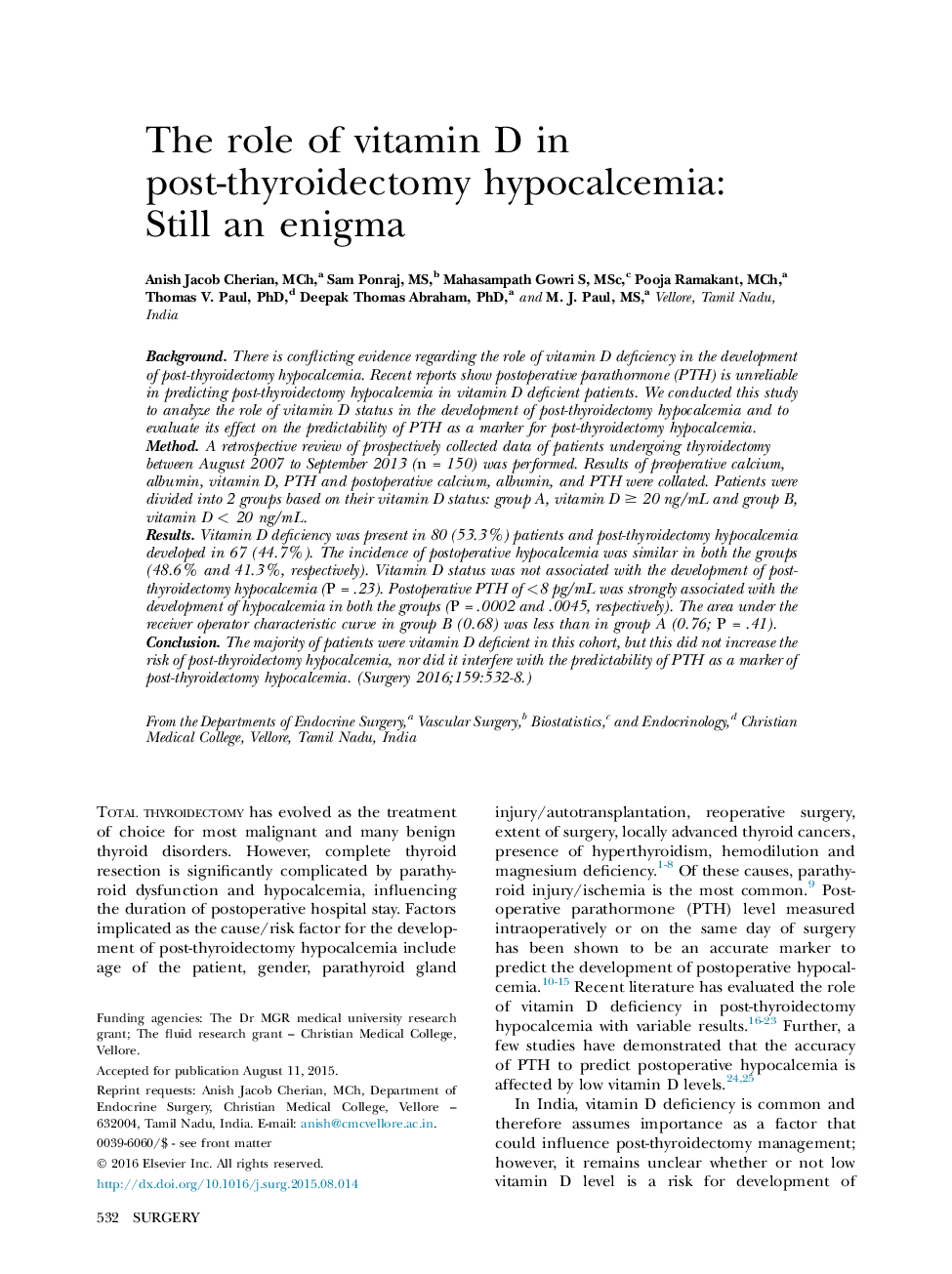| Article ID | Journal | Published Year | Pages | File Type |
|---|---|---|---|---|
| 4306464 | Surgery | 2016 | 7 Pages |
BackgroundThere is conflicting evidence regarding the role of vitamin D deficiency in the development of post-thyroidectomy hypocalcemia. Recent reports show postoperative parathormone (PTH) is unreliable in predicting post-thyroidectomy hypocalcemia in vitamin D deficient patients. We conducted this study to analyze the role of vitamin D status in the development of post-thyroidectomy hypocalcemia and to evaluate its effect on the predictability of PTH as a marker for post-thyroidectomy hypocalcemia.MethodA retrospective review of prospectively collected data of patients undergoing thyroidectomy between August 2007 to September 2013 (n = 150) was performed. Results of preoperative calcium, albumin, vitamin D, PTH and postoperative calcium, albumin, and PTH were collated. Patients were divided into 2 groups based on their vitamin D status: group A, vitamin D ≥ 20 ng/mL and group B, vitamin D < 20 ng/mL.ResultsVitamin D deficiency was present in 80 (53.3%) patients and post-thyroidectomy hypocalcemia developed in 67 (44.7%). The incidence of postoperative hypocalcemia was similar in both the groups (48.6% and 41.3%, respectively). Vitamin D status was not associated with the development of post-thyroidectomy hypocalcemia (P = .23). Postoperative PTH of <8 pg/mL was strongly associated with the development of hypocalcemia in both the groups (P = .0002 and .0045, respectively). The area under the receiver operator characteristic curve in group B (0.68) was less than in group A (0.76; P = .41).ConclusionThe majority of patients were vitamin D deficient in this cohort, but this did not increase the risk of post-thyroidectomy hypocalcemia, nor did it interfere with the predictability of PTH as a marker of post-thyroidectomy hypocalcemia.
